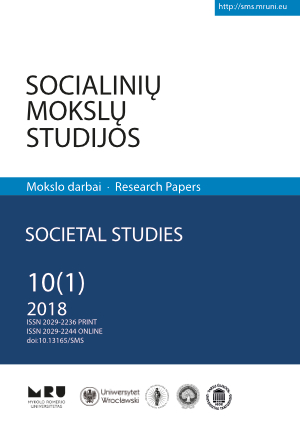PSICHOANALIZĖS REIKŠMĖ SOCIALINIŲ NORMŲ PAŽINIMUI
IMPACT OF PSYCHOANALYSIS FOR COGNITION OF SOCIAL NORMS
Author(s): Mindaugas VerbickasSubject(s): Christian Theology and Religion, Ethics / Practical Philosophy, Psychoanalysis, Social Norms / Social Control
Published by: Mykolas Romeris University
Keywords: psychoanalysis; social norms; Oedipus complex; Christian ethics; Christian morality;
Summary/Abstract: Modern society undergoes such rapid transformations, leading to social norms and institutions being faced with difficulties relating to adaptation. The question arises of whether psychoanalysis can be useful for the settlement of ethical and legal dilemmas related to the transformations of modern society. Even if the psychoanalytical process and social norms do not share the same goals, they meet in the Oedipal phase, because it is there, in the context of the prohibition of incest, that we find the first requirement that supposes the existence of moral law. Can data obtained in the process of psychoanalysis and examining a person’s mental well-being be used as an argument to substantiate the cited transformations? Aren’t certain value-based, institutional and legal transformations of modern society the result of the at least partial influence of data obtained during the process of psychoanalysis? However, unconscious meanings received as data in the psychoanalytic process and social norms are two completely different spaces: the moralist’s power is always in the norms, but the outcome of a psychoanalytical process does not anticipate making patient moral. The process of psychoanalysis accomplishes the function of liberating the morality of guilt and changing the relation with social norms.
Journal: Socialinių mokslų studijos
- Issue Year: 10/2018
- Issue No: 1
- Page Range: 98-107
- Page Count: 10
- Language: Lithuanian

